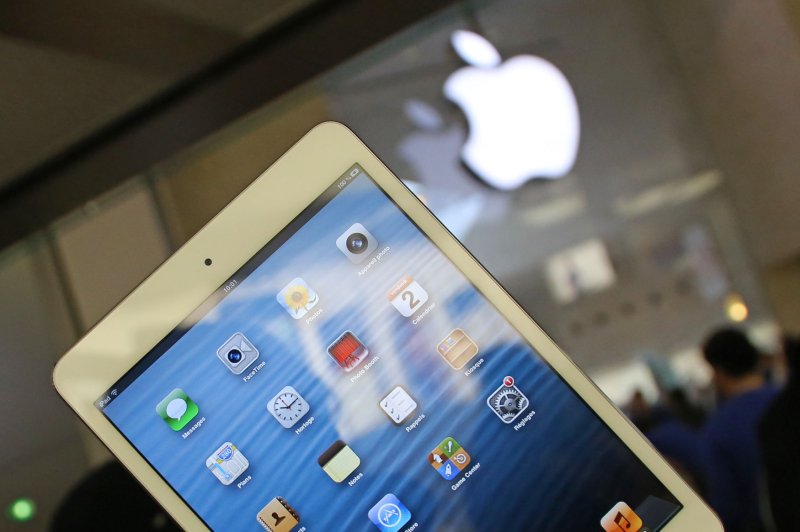A customer holds a new iPad mini in the Apple Store at the Carrousel du Louvre in Paris. UPI/David Silpa |
License Photo
WASHINGTON, July 15 (UPI) -- A new study suggests there's an increase in the prevalence of allergic contact dermatitis among children.
Exposure to nickel is one of the most common causes of this particular skin irritation, and researchers suggest the increase could be due to the growing prevalence of laptops and cell phones containing nickel.
The study, published in the journal Pediatrics detailed the case of a young boy prone to skin irritations who began suffering from a slightly different type of rash -- one that didn't respond to his normal bevy of lotions and ointments.
The reaction was the result of extensive contact with an uncovered Apple iPad, his dermatologist discovered. A full iPad case was enough to prevent the patient from future contact with the nickel used in the device's aluminum coating.
Though mild, the rash presents as the usual combination of bumps on the skin, itching, redness and dry splotches. Severe cases may feature blisters. Food manufacturers are required by law to list ingredients so consumers with allergies can protect themselves, but makers of non-edible items (like an iPad) aren't required to offer the same labeling. Whereas a food allergy can sometimes be life threatening, skin allergies are rarely more than a nuisance.
Apple, the maker of the iPad, iPhone and other personal electronics, released a statement in response to the recent report.
"We have found that allergies like the one reported in this case are extremely rare," the company said. "Apple products are made from the highest quality materials and meet the same strict standards set for jewelry by both the U.S. Consumer Safety Product Commission and their counterparts in Europe. We rigorously test our products to make sure they are safe for all our customers."















